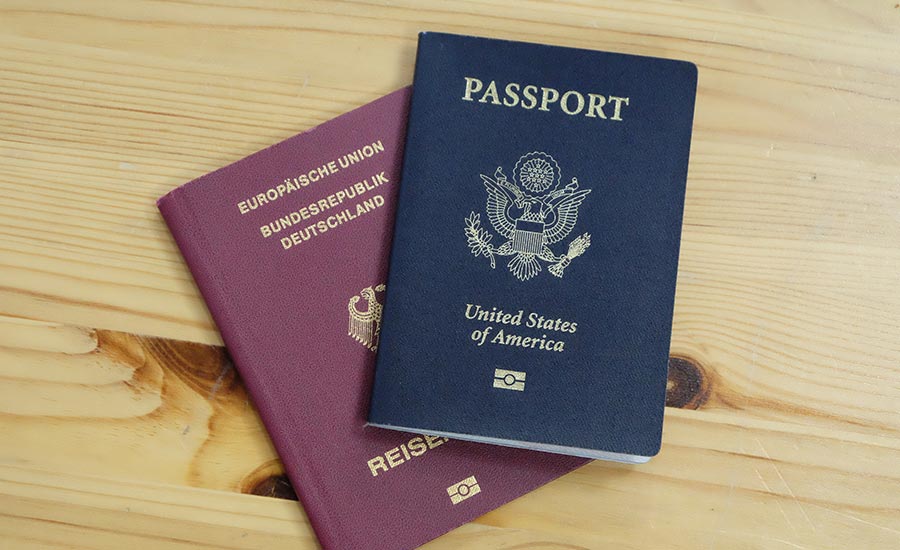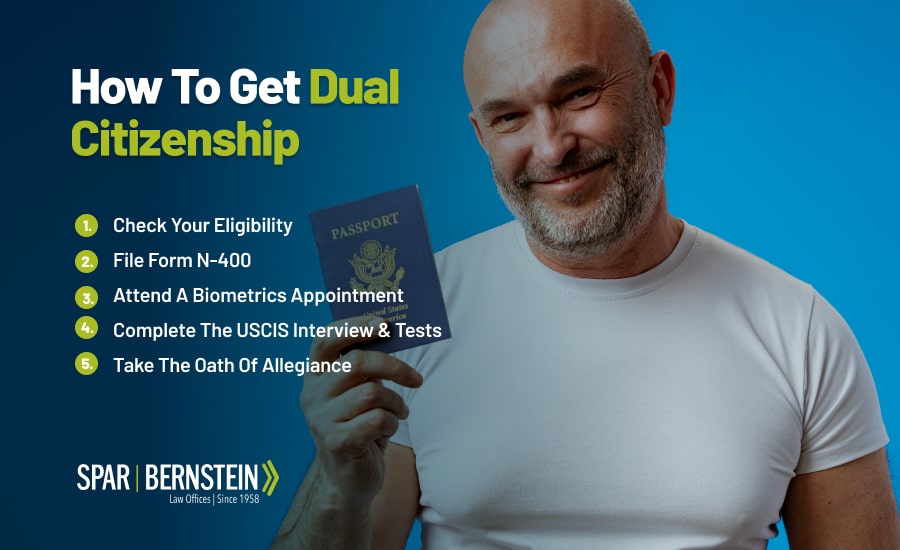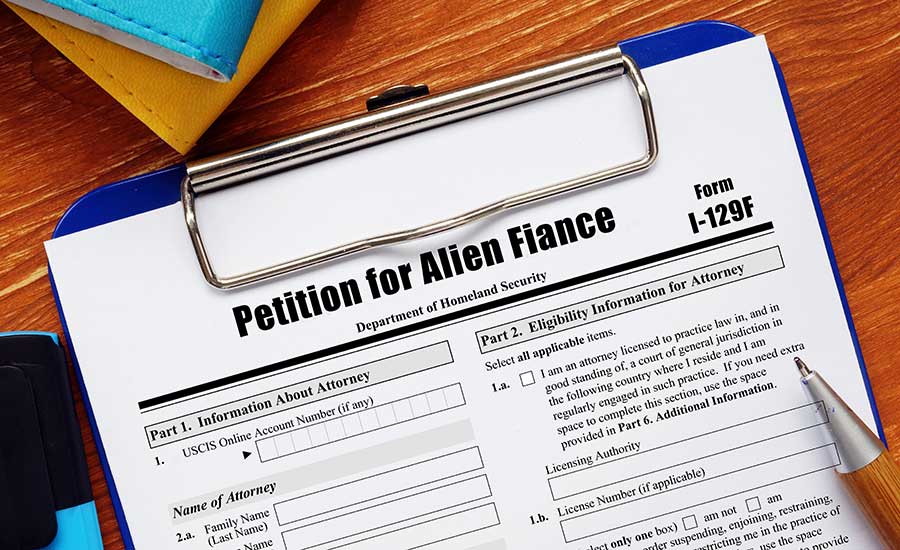

How To Get Dual Citizenship: Key Takeaways
- To get dual citizenship in the U.S., you must first apply for U.S. citizenship through naturalization
- You can only apply for dual citizenship if your home country allows it
- If you were born in the U.S. or have a U.S. citizen parent, you may already have dual citizenship
- Dual citizenship offers key benefits like travel freedom, work opportunities, and access to education and social services
- It also comes with obligations, such as U.S. taxes, financial reporting, and potential jury duty
More than 75% of countries worldwide allow dual citizenship. The majority of them are in Latin America and Europe.
If you’re thinking about becoming a U.S. citizen while keeping your current citizenship, this guide is for you.
We’ll share:
- How to get dual citizenship in the U.S.
- The advantages and drawbacks of dual citizenship
How To Apply For Dual Citizenship In The US
To get dual citizenship in the U.S., you must apply for U.S. citizenship.
1. Check If You Can Have Dual Citizenship
Some countries don’t allow dual citizenship. Applying for U.S. citizenship might mean giving up your original one.
You can check if you are permitted to hold dual citizenship by:
- Contacting the embassy or consulate of your country of origin.
- Visiting the official immigration or foreign affairs website of your country.
- Talking to an experienced immigration attorney.
2. Determine If You Qualify For US Citizenship
You may be eligible for U.S. citizenship if you:
- Are a Green Card holder: You must have permanent residence for five years and meet all naturalization requirements.
- Are married to a U.S. citizen: You may apply for citizenship after three years of permanent residency.
- Apply through investment: You have an EB-5 visa and meet the requirements for naturalization.
These three groups follow the same naturalization process.
3. File Form N-400
Submit Form N-400, Application for Naturalization, with the U.S. Citizenship and Immigration Services (USCIS). Attach supporting documents proving your eligibility.
4. Attend A Biometrics Appointment
Visit a USCIS application center to have your fingerprints, photo, and signature taken for a background check.
5. Complete The USCIS Interview & Tests
Meet with a USCIS officer to answer questions about your application and take the English and civics test to demonstrate your knowledge of U.S. history and government (Read more about U.S. citizenship test questions).
6. Take The Oath Of Allegiance
If your application is approved, attend a naturalization ceremony where you’ll take the official oath to become a U.S. citizen.

Understanding Dual Citizenship In The US
Dual citizenship, or dual nationality, is a legal status that allows you to be a citizen of two countries simultaneously. This also means you have rights and obligations to both countries.
You don’t have to give up your original citizenship to become a U.S. citizen as long as your country allows dual citizenship.
Here’s more on the topic from Brad Bernstein, Managing Partner at The Law Offices of Spar & Bernstein.
Obtaining U.S. Citizenship By Birth
If you are born in the U.S., you acquire citizenship naturally regardless of the citizenship held by your parents.
After birth, you get a birth certificate verifying your U.S. citizenship.
If your parents’ country allows it, you may also be eligible for citizenship there, giving you dual citizenship from birth.
Obtaining U.S. Citizenship By Descent
You can obtain U.S. citizenship through descent, also known as “acquisition” or “derivation” of citizenship.
This path can be valid if you were born outside the U.S. and at least one of your parents is a U.S. citizen.
If you were born in a country that grants citizenship by birthplace and want to apply for a U.S. citizenship by descent, talk to an immigration lawyer about your next steps in the process.
What Are The Benefits Of Dual Citizenship?
Dual nationality offers numerous benefits, providing more opportunities for personal and professional growth.
Employment Opportunities
Dual citizenship allows you to work in the U.S. without a work visa or a special permit, allowing you to apply for various job offers, career advancements, and entrepreneurial ventures in the U.S.
Access To Social Services
As a U.S. citizen, you receive access to healthcare, education, and social welfare programs, ensuring a wide range of high-quality services and benefits and a better quality of life.
Access To Education
With dual citizenship, you can access top U.S. universities at resident rates, which can significantly reduce your tuition costs.
Travel Freedom
Having dual citizenship allows you to travel between the U.S. and other countries without worrying about U.S. visas or entry restrictions.
The result? Increased mobility and more flexible travel plans.
Property Ownership
As a U.S. citizen, you can own property in the U.S. without facing the restrictions that non-citizens might encounter.
What are the benefits? Freedom to invest in real estate for personal use, rental income, or business purposes, providing valuable opportunities for financial growth and stability.
Political Rights
Dual citizenship allows you to participate in the U.S. political processes: vote in elections, engage in civic activities, and more. In this way, you can contribute to the democratic governance and civic life of the country.
Family Sponsorship
Having dual citizenship means having the ability to sponsor family members for immigration to the U.S., helping eligible relatives obtain legal residency and live and work in the U.S.
This strengthens family ties and offers your loved ones a chance to build a new life in America.
What Are The Obligations Related To Dual Citizenship?
Apart from the advantages above, dual citizenship comes with specific obligations and challenges that require careful consideration.
Taxation Obligations
Dual citizenship may require you to pay income tax in both countries. While tax treaties may mitigate double taxation, it’s crucial to understand and comply with the tax laws of both countries to avoid legal issues.
Financial Reporting Obligations
If you hold financial accounts abroad, such as savings, investments, or real estate, you’ll need to disclose them annually to U.S. tax authorities.
Jury Duty Obligations
As a U.S. citizen, you may be called for jury duty and are legally obligated to serve.
Need Help With Dual Citizenship? Contact Spar & Bernstein
If you are considering dual citizenship in the U.S., our attorneys at The Law Offices of Spar & Bernstein can guide you through the process.
With 60+ years of experience in business, family and employment immigration, marriage-based visas and investor visas, our knowledgeable attorneys will:
- Research your eligibility for dual citizenship.
- Prepare and file the required documentation.
- Communicate with authorities, including USCIS, embassies, and consulates on your behalf.
- Prepare you for your naturalization interview.
- Track the progress of your citizenship application and keep you updated. throughout the process.
Handling each case with compassion and care, our experienced team will help you navigate the complex landscape of dual citizenship.
How To Get Dual Citizenship: FAQs
Dual citizenship covers many aspects and can raise numerous questions. If you haven’t found answers to your questions above, explore some frequently asked questions from our clients over the years.
Who is eligible for dual citizenship in the U.S.?
Anyone who meets the requirements for naturalization in the U.S. may apply to become a citizen. However, you should check with the Embassy or Consulate in your country of origin to determine if you can have dual citizenship.
Do I have to renounce my current citizenship to become a U.S. citizen?
No, you don’t have to renounce your current citizenship(s) to become a U.S. citizen through naturalization. The U.S. allows you to maintain your existing citizenship(s).
When can I apply for dual citizenship in the U.S.?
You can apply for U.S. citizenship at any time, provided you meet the naturalization eligibility requirements. Typically, this happens after you have had your Green Card for three years (after marriage to a U.S. citizen) or for five years in any other case.
Which passport should I use when traveling if I have dual citizenship?
If you have dual citizenship and several passports, you must use your U.S. passport when entering and leaving the U.S.
If you are traveling to a country different from the U.S., you can use either passport.
Can I apply for U.S. citizenship if I served in the U.S. military?
Yes, serving in the U.S. military gives you the right to apply for expedited naturalization. If you want to obtain dual citizenship, make sure your country of origin allows it.
What countries do not allow dual citizenship with the U.S.?
Some of the countries that do not allow dual citizenship with the U.S. include India, Japan, China, and the United Arab Emirates. If you are from one of these countries and applying for U.S. citizenship, you may automatically lose your current citizenship.
How do I prove my dual citizenship status to the U.S. authorities?
To prove your dual citizenship status, you may be required to provide evidence such as passports, naturalization certificates, birth certificates, or other documents.
Can I sponsor family members for U.S. immigration if I am a dual citizen?
Yes, U.S. citizens, including dual citizens, can sponsor certain family members for U.S. immigration provided eligibility and sponsorship requirements are met.
Can I vote in U.S. elections if I have dual citizenship?
Yes, if you have dual citizenship, you can vote in U.S. elections if you meet the eligibility requirements, including residency and registration deadlines.
Is triple citizenship allowed in the U.S.?
Yes, the U.S. permits triple citizenship.





